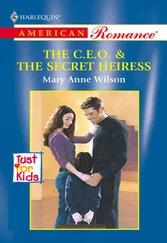MARY VENSEL WHITE
The Qualities of Wood
Authonomy
An imprint of HarperCollinsPublishers
1 London Bridge Street
London SE1 9GF
www.authonomy.com
www.harpercollins.co.uk
THE QUALITIES OF WOOD. Copyright © Mary Vensel White. All rights reserved under International and Pan-American Copyright Conventions. By payment of the required fees, you have been granted the nonexclusive, nontransferable right to access and read the text of this e-book on-screen. No part of this text may be reproduced, transmitted, downloaded, decompiled, reverse-engineered, or stored in or introduced into any information storage and retrieval system, in any form or by any means, whether electronic or mechanical, now known or hereinafter invented, without the express written permission of HarperCollins e-books.
Mary Vensel White asserts the moral right to be identified as the author of this work
A catalogue record for this book is available from the British Library
This novel is entirely a work of fiction. The names, characters and incidents portrayed in it are the work of the author’s imagination. Any resemblance to actual persons, living or dead, events or localities is entirely coincidental.
Source ISBN: 9780007523580
Ebook Edition © JANUARY 2012 ISBN: 9780007469505
Version: 2015-02-09
For Jason, for everything
Cover
Title Page
Copyright
Dedication
1
2
3
4
5
6
7
8
9
10
11
12
13
14
15
16
17
18
19
20
21
22
23
24
25
26
27
28
29
30
31
32
Thanking
About the Author
About Authonomy
About the Publisher
In the small, congested airport, Vivian didn’t recognize her husband. Summertime. Outside, the sun beamed white on the runway and grassy fields. Inside, the terminal was stuffy and warm. Vivian passed a group of brightly-clothed summer travelers, this haze of blue, pink, yellow and green, and walked slowly along an eye-level, smudged window and into the crowded inlet beside the gate, all the while hunting for Nowell. Somehow, she walked right by.
She imagined the terminal was normally empty, the surrounding community being rural and unworldly. But it was the season of vacations: eastern hometowns, tropical beaches, exotic cities. Not everyone was headed to an abandoned house in the country, she thought. The travelers dispersed purposefully, trailing loved ones or heading solo toward the cars parked in rows at the front of the building. Vivian was pulled along with the crowd. Nowell was late. At first she felt irritated but quickly dismissed the feeling. It was a reunion, she reminded herself.
A large hand gripped her shoulder and she spun around.
‘Where are you going?’ Nowell’s deep voice. His dark eyes.
‘I couldn’t see you,’ she said. She reached up for him, grasped his shoulders as though to pull herself up. ‘I didn’t see you.’
On the way to the house, she soaked him in: the shadowed gash of his cheekbone, his ruddy lips. Nowell kept his hand on her thigh. His touch felt curiously foreign after their four-week separation, but it ignited something too.
The drive wasn’t long, the countryside a blur of sameness. Fields of indecisive green, hills falling short of remarkable. Here and there a white or brown-shingled house, some shadowed by barns. The predictable Midwest.
Nowell’s hand left her leg to steer the car onto a dirt driveway. ‘What do you think?’ he asked.
Vivian peered through the windshield. The small, white house was set back from the road and elevated slightly, like a judge on his bench. The sun lit the house from behind. White with dark green trim, there were wide strips of paint missing altogether; these sections of bare wood gave the impression of something bursting its seams. Two narrow windows gazed at the newcomers and beneath them, a bluish shadow stretched, tongue-like, down the front steps and onto the lawn.
‘It looks stable,’ Vivian said.
He chuckled. The truck made a strange revving sound after he removed the key. ‘Just the timing,’ he told her.
Vivian nodded. She knew the truck was like the house, old and in disrepair. Nowell had traded in their Honda when he left the city. They gave up the lease on their apartment and he moved first to arrange things. For a month, Vivian stayed at her parents’ house, working at her job for a couple more paychecks. It was the longest they had ever been apart.
She hadn’t been particularly attached to their Honda, a blue hatchback with gray seats, but the truck was big and awkward. The worn seat belt was loose over her lap, leaving almost enough room for another person. Vivian’s feet grazed the floor. Like a child, she had only a limited view over the dash.
Nowell opened the passenger door and lifted her out of the truck. Vivian stood about five-four and her husband was over six feet. Everyone in her family seemed shorter than average, while his whole family was tall. At their wedding, the first few rows in church seemed like a tilted painting, or a photograph enhanced for effect: his family on one side, hers on the other. Four years married, she thought. She would be twenty-eight this summer.
Late July heat lingered in the air and warmed the lawn, though the sun was beginning to fade. The air was fragrant with live things. In the shaded areas, cool grass poked through Vivian’s sandals. She stood for a moment, studying her new home. Nowell’s grandfather had built the house as a newlywed and when he died in a hunting accident, Nowell’s grandmother stayed and finished raising their three children.
His grandmother was stubborn and tied to the place, Nowell said. She seldom took vacations or visited family. Vivian met Grandma Gardiner twice: at their wedding, and when Nowell’s brother, Lonnie, had a serious accident. The old woman hadn’t left much of an impression on her; she remembered spindly legs and gray hair pinned above one ear with a clip.
At one time, the house was probably fresh and welcoming: now it showed its age. A wooden swing, dusty from neglect, hung unevenly from the porch rafters. Its chains were pocked with rust. Three small windows formed a triangle at the peak of the roof, under a section of roof where the tiles had bubbled up. An attic, Vivian thought.
Nowell kicked up a cloud of dust. ‘Lonnie left this morning,’ he said. ‘Sorry to miss you, but he wanted to get back.’
‘Well, you had him for two weeks,’ she said, picturing his burly brother. ‘Did you get much done?’
‘Definitely. I was glad for the help.’ He rummaged through the bushes beside the porch, picking up twigs and scraps of paper with his long, elegant fingers.
‘Do they still have that apartment?’ Vivian asked.
‘Yeah, but they want to move.’
‘Why?’
‘Too small. It’s only a one bedroom.’
She looked at him. ‘Ours was a one bedroom.’
‘And it was too small.’ Nowell dumped the handful of garbage into a metal trash can, then stared at the tall grass. It sprouted in clumps, trapping bits of rubbish next to the house.
‘Is Lonnie working now?’ Vivian asked.
‘He’ll look for something as soon as he gets back. They still have some of the money my grandma left.’
‘That won’t last forever.’
Nowell looked at her quickly. A warning. ‘Dorothy has a job,’ he said.
Vivian couldn’t help but be skeptical where Lonnie was concerned. When Nowell had told her Lonnie was coming to help clean up the house, she figured there was something he wanted. And now there was a wife, too, whom Vivian hadn’t met. She could only imagine a woman with the same lack of ambition if she’d been foolish enough to marry Lonnie. They’d been married for a few months now, had known each other for only two weeks when they headed for city hall. Vivian’s mother-in-law, Beverly, harped on and on about the elopement, a welcome change since she usually overlooked Lonnie’s faults.
Читать дальше












